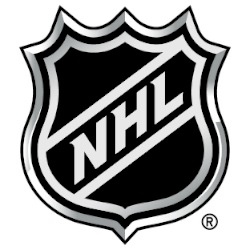 After reviewing several scenarios to determine a 2019-2020 champion, the NHL is now reportedly settling on a 24-team Stanley Cup tourney played in a single market.
After reviewing several scenarios to determine a 2019-2020 champion, the NHL is now reportedly settling on a 24-team Stanley Cup tourney played in a single market.
The tournament would be played without fans in an area deemed to be relatively lightly impacted by the COVID-19 pandemic and in a downward trend when it comes to positive tests, with locations like Manchester, NH or Grand Forks, ND mentioned. But that idea has been rejected in favor of a current NHL market or even two, with some limited travel involved.
Some teams want to see an abbreviated training camp and the resumption of the season–even teams with no shot at the playoffs. The reason why: playing those meaningless games means the teams fulfill the terms of their broadcast contracts. Players, of course, aren’t that keen on the meaningless games. From the New York Post:
We have been told from sources on both sides of the aisle that NHL teams continue to press for resumption and completion of the regular season that would precede a traditional Stanley Cup playoff tournament. That, though, is not going to happen. I understand that teams completely out of contention don’t want to owe their local television partners give-backs or credits, but sorry about that.
The Red Wings, Senators, Kings, Devils, et al, are not reconvening — an arduous enough task in itself given the myriad travel restrictions across the world — in order to be isolated for a three-week training camp and up to 13 completely meaningless games apiece. That is ridiculous. We are living in a surreal environment, but let’s be somewhat realistic here, too….
Slap Shots has learned that union leadership told the players on a Thursday conference call that a summer resumption would generate approximately $350 million in revenue from existing television and sponsorship contracts. That number is believed based on a 24-team playoff format that would be preceded by two or three exhibition games per team.
The NHL has said that resumption could generate between $450 million and $500 million, but that range is believed based on completing the full schedule. Both sides agree that $1 billion in hockey-related revenue will be lost if there is no further play this year.

